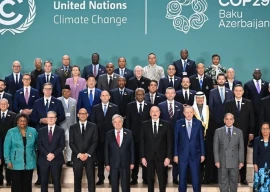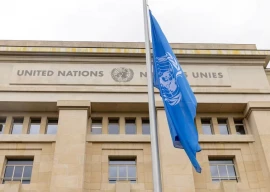
Security was especially tight in New Delhi where large sections of the capital were sealed off for the annual parade of military hardware.
Around 35,000 police personnel, including 15,000 members of the paramilitary forces, were deployed across New Delhi for the event, which is always considered a possible target of militant attack.
Indonesian President Susilo Bambang Yudhoyono was the guest of honour.
Snipers manned rooftops along the route of the parade, while helicopters and unmanned surveillance drones monitored the area from above.
In Muslim-majority Kashmir, where an anti-India insurgency has claimed thousands of lives since 1989, a strict curfew was enforced in the summer capital, Srinagar.
The streets were completely deserted apart from the large numbers of security personnel who manned barbed-wire barricades across roads leading to the main downtown area of Lal Chowk.
"No procession or gathering would be allowed in any part of the city, today," Srinagar?s district magistrate Meraj Kakroo said.
Authorities also jammed local mobile phone networks.
The Kashmir Valley is usually tense on Republic Day, but particularly so this year because of a drive by India's main opposition, the Hindu nationalist Bharatiya Janata Party (BJP), to march to Srinagar and hold a special rally to raise the national flag in Lal Chowk.
Authorities had blocked road links between Kashmir and neighbouring states on Tuesday and turned back thousands of BJP activists gathered on the state border.
Several senior BJP leaders were arrested, amid appeals by the Kashmir government and the federal government in New Delhi to call off the "provocative" march.
Kashmir has been riven by religious and separatist conflict for the past 20 years.
The BJP favours a hardline approach in the region, refusing any dilution of national sovereignty or relaxation of tough military laws that have been condemned by human rights groups.
Government ministers had warned that the BJP rally could trigger fresh protests in the Kashmir Valley, where at least 100 protesters were killed in massive anti-India demonstrations last year.
In a Republic Day address, Kashmir Chief Minister Omar Abdullah called on separatist groups to come to the negotiating table.
"I hope that you will become part of the dialogue and help contribute to a better future," Abdullah said.
In her annual address, Indian President Pratibha Patil flagged corruption and inflation as two of the main challenges facing the world's second-fastest growing major economy.
"Corruption is the enemy of development and good governance. Instead of getting lost in this mire, it is necessary to rise above it," Patil said.
Indian's Congress-led government has spent the past six months battling a series of damaging scandals.
The entire winter session of parliament was lost due to protests from the opposition over the so-called 2G scam, in which former telecom minister A. Raja is accused of selling telecom licences at hugely discounted prices.
While welcoming the pace of economic growth, Patil warned of the plight of those being left behind and labelled soaring food prices as "cause for serious concern".
In a bid to keep inflation in check, India's central bank hiked interest rates Tuesday to their highest level since early 2008.
Republic Day marks the date in 1950 when India's new constitution came into effect. India gained independence from Britain in 1947, but went through a transitional phase when it was still classed as a dominion.

1722586547-0/Untitled-design-(73)1722586547-0-165x106.webp)


1732326457-0/prime-(1)1732326457-0-165x106.webp)


1731325890-0/trump-(24)1731325890-0-270x192.webp)









COMMENTS
Comments are moderated and generally will be posted if they are on-topic and not abusive.
For more information, please see our Comments FAQ